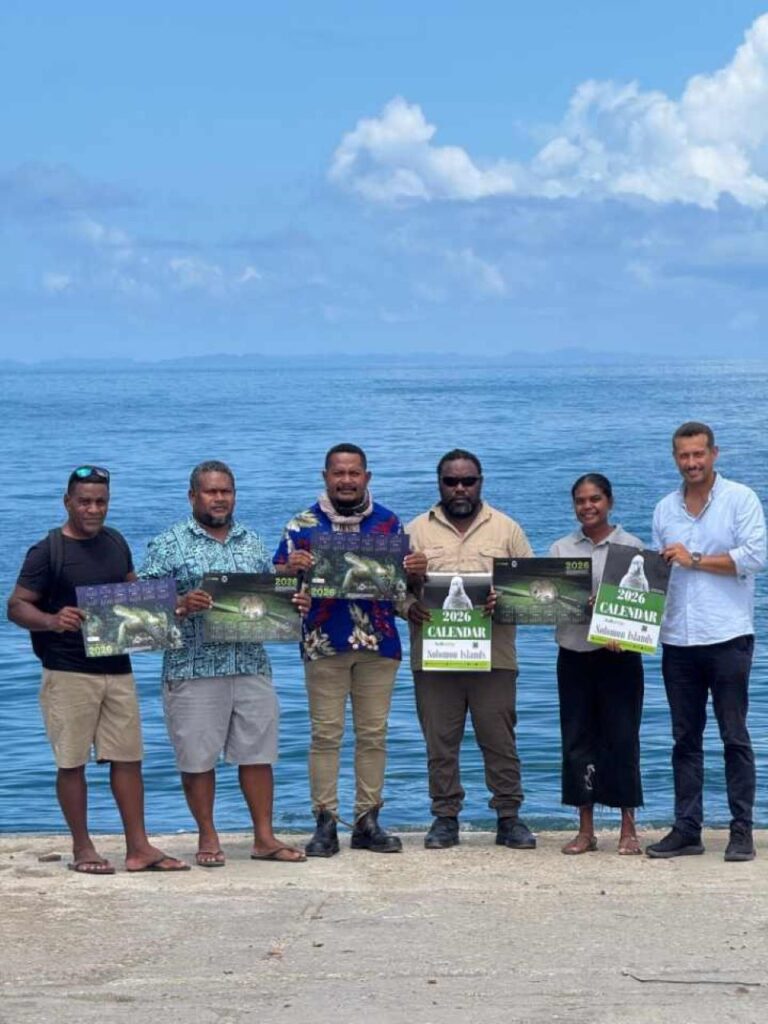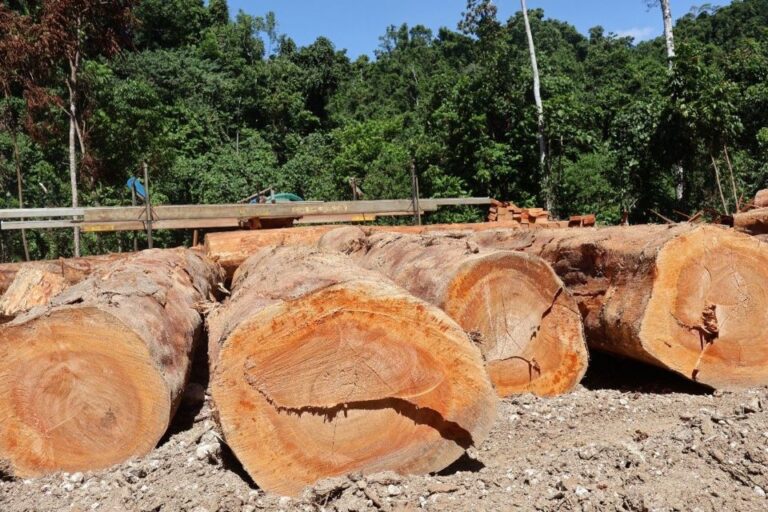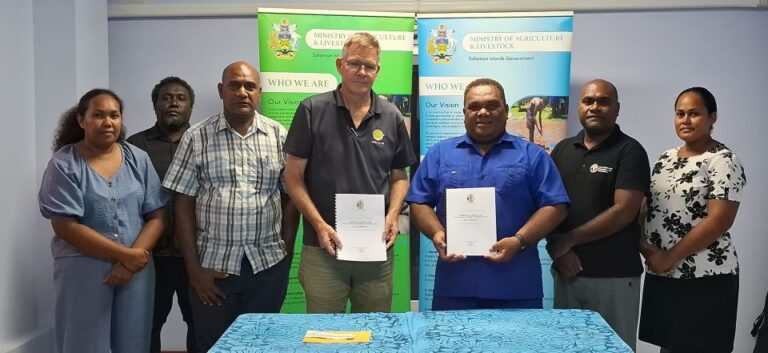BY LESLEY FOINAGWA – ISLES MEDIA FREELANCER
Jethro Maelaga, a young, determined farmer in West Kwaio, Malaita province is paving new ground in the cocoa industry.
His efforts reflect a growing interest in cocoa farming across rural Solomon Islands, where agriculture continues to be a vital source of income and food security.
Jethro Maelaga, an ambitious youth from the region, is taking bold steps to expand his cocoa plantation to one hectare while also introducing sustainable practices in seedling cultivation.
Currently managing a nursery of 1,000 cocoa seedlings, Maelaga is determined to grow his farm despite the challenges. “I want to extend my cocoa farm to reach one hectare,” he said. “But it’s not easy for a farmer to develop such a large plantation without support, especially in terms of labour.”
Committed to the hard work ahead, Maelaga spends most of his days planting and clearing bush. His motivation stems from strong local and export demand for both white and dry cocoa beans. “The market demand attracted me, especially the price for both white and dry beans,” he added.
What sets Maelaga apart, however, is his innovative and eco-friendly approach to cocoa seedling cultivation. In a shift from conventional nursery practices, he has chosen to grow his seedlings not in plastic polybags, but in biodegradable leaf pots made from banana and plantain leaves.
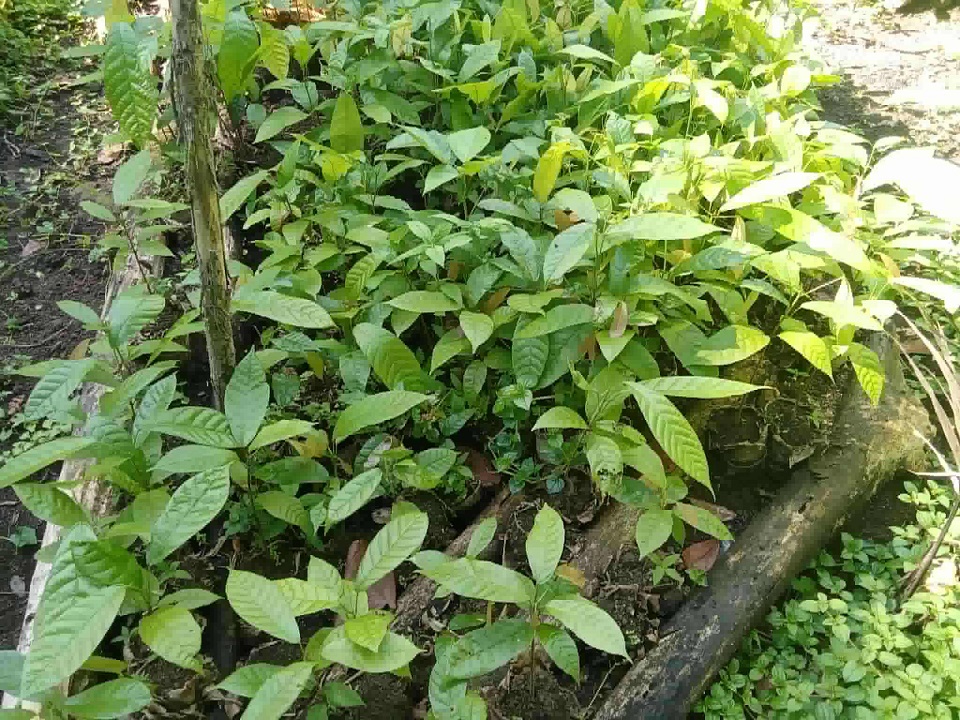
“Polybags are expensive, and they pollute our land after use,” Maelaga explained, crouching beside his leafy seedbed. “My grandfather used leaves in his time, and I thought, why not return to that wisdom?”
The transition wasn’t without setbacks. “I lost nearly 200 seedlings in the first trial. But I didn’t give up,” he said. “I learned how to double-wrap the leaves and reinforce the base with another leaf. Now they hold just long enough for transplanting.”
Maelaga’s sustainable method has already started to attract attention from neighbouring farmers, who are curious about the potential of this environmentally friendly technique. He plans to expand his nursery next year and share his knowledge with others in the community.
“It’s not easy,” he admits. “But when you see a green field growing without polluting the earth, you know it’s worth it.”
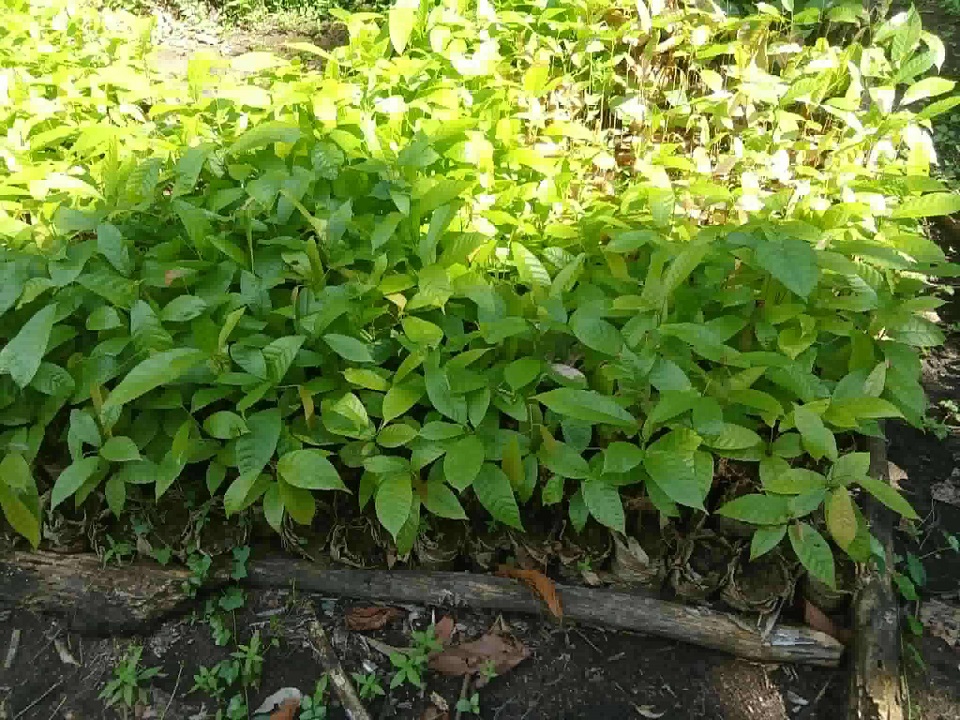
He encourages other young people and cocoa farmers to follow suit. “I want to encourage young people to get involved in cocoa farming instead of just staying at home doing nothing,” he said. “This is a way to expand and improve your livelihood.”
Maelaga prefers to work during the early morning and late afternoon when conditions are cooler. Even the rainy season doesn’t deter his dedication to brushing and maintaining the farm.


